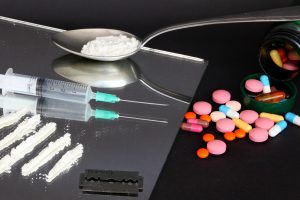
Signs I Need A Cocaine Detox
Cocaine is a highly addictive drug, not to mention quite expensive. This drug also has harmful health risks to the user’s emotional well-being, brain, and heart health. Most individuals who abuse cocaine become dependent on the drug psychologically and physically. This can result in dangerous, devastating, and long-term repercussions.
Cocaine is an illegal Schedule II drug in the US because it has high addiction potential. It generates a euphoric feeling in the user by altering how the brain experiences pleasure, making it harder to feel good without it.
This drug affects the brain’s deepest regions, which are responsible for rewarding us for good behavior. This involves activities involving healthy pleasure, sex, and food. When cocaine stimulates these areas of the brain, it makes you feel good, giving you stronger cravings to use more of the drug.
Continued and repetitive cocaine use causes tolerance, whereby you need increased drug doses to experience the same effects you felt when you first used it. This also causes cocaine dependence which can eventually lead to addiction. Thus, any cocaine use can be deemed unsafe, no matter how small.
Smoking cocaine or injecting it has an almost immediate euphoric effect as it is quickly absorbed into the brain and the bloodstream with these methods. When cocaine is inside the brain, it can affect the neurotransmitters or chemical messengers used to communicate with the nerve cells. It also prevents nerve cells from reabsorbing norepinephrine, serotonin, and dopamine. This causes a chemical buildup which results in feeling a pleasant high.
Cocaine abuse and addiction can damage the lungs, blood vessels, heart, and brain while leading to sudden death in some cases.
Symptoms of Cocaine Addiction
 Anyone who uses cocaine regularly can become tolerant of it, meaning they will need to take larger doses to feel the desired effects. This is one of the first signs that they will need to go for cocaine detox. The user will spend more time getting the drug, using it, and recovering from their cocaine use as they lose control over themselves. This makes it harder to get the help they need.
Anyone who uses cocaine regularly can become tolerant of it, meaning they will need to take larger doses to feel the desired effects. This is one of the first signs that they will need to go for cocaine detox. The user will spend more time getting the drug, using it, and recovering from their cocaine use as they lose control over themselves. This makes it harder to get the help they need.
Another sign that someone needs cocaine detox is when the affected individual starts neglecting or overlooking their duties such as workplace responsibilities, family obligations, or schoolwork due to their cocaine use problem. People with a cocaine addiction can be hard to depend on. They tend to withdraw from their peers and loved ones. It is also not uncommon for them to stop engaging in events or activities they enjoyed before.
Addiction is a dangerous condition that can impact the affected person’s reward and motivation circuitry within the brain. When someone suffers from cocaine addiction, they might feel like they need to have the drug to experience some balance. This person might also seek out more cocaine to relieve any withdrawal symptoms they may encounter when the drug leaves their system.
Withdrawal symptoms to watch out for from someone you suspect is abusing or addicted to cocaine include drug cravings, nightmares, mood swings, irritability, depression, increased appetite, fatigue, and drowsiness. Even though cocaine does not have similar physical withdrawal symptoms as other drugs, it can still cause a significant emotional toll on the user. Cocaine abuse or addiction can be challenging to handle if you don’t have the right help or support.
Mixing Cocaine With Other Drugs
 Most people who abuse or are addicted to cocaine tend to use it with alcohol or other drugs. Abusing cocaine with other addictive substances is known as poly-drug abuse, which is another condition altogether. It can lead to psychological and physical side effects.
Most people who abuse or are addicted to cocaine tend to use it with alcohol or other drugs. Abusing cocaine with other addictive substances is known as poly-drug abuse, which is another condition altogether. It can lead to psychological and physical side effects.
Some users, for example, might mix heroin and cocaine, especially if they are injection drug users. This can cause conflicting effects in the user’s body because heroin depresses the central nervous system while cocaine acts as a stimulant. Heroin can diminish stress and anxiety, and this feeling can accompany the excitability, and high energy cocaine abuse produces.
If an individual takes both drugs, they could exhibit signs such as lack of sleep, suppressed appetite, blurred vision, and impaired motor function. If you spot these signs in the affected individual, it could indicate they need cocaine detox.
 Mixing cocaine with alcohol is also dangerous because both substances elicit different responses in the user’s body. Cocaine and alcohol work together to diminish each other’s effects on the body. This makes it difficult for the user to determine how high or drunk they are, which can increase the risk of an overdose.
Mixing cocaine with alcohol is also dangerous because both substances elicit different responses in the user’s body. Cocaine and alcohol work together to diminish each other’s effects on the body. This makes it difficult for the user to determine how high or drunk they are, which can increase the risk of an overdose.
Mixing several drugs can multiply the possible side effects of each drug. Suppose the person is also suffering from any co-occurring mental health problems; poly-drug abuse may also compound them. Hence the urgent need for cocaine detox in such cases.
When one takes a hefty dose of cocaine at one go or mixes it with alcohol or other drugs, this can increase the risk for adverse health consequences or an overdose. An overdose happens when an individual takes too much of a drug for their body to handle, reaching toxic levels in their bloodstream. A cocaine overdose may lead to a heart attack or a stroke which is a medical emergency. If you suspect someone has overdosed, you should seek professional medical assistance immediately.
The withdrawal symptoms experienced from cocaine-related poly-drug abuse can be lasting and emotionally painful. Thus a medical cocaine detox makes you better equipped to handle withdrawal and addiction using the necessary resources, support, and treatment.